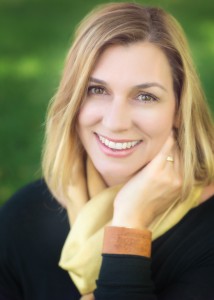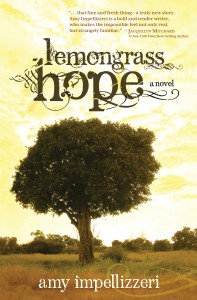What is Success?
 From the beginning, I had exactly one professional goal in life – to be a lawyer. And not just any lawyer – a successful one. I wasn’t sure exactly what success would look like, but I knew this – I’d know it when I saw it.
From the beginning, I had exactly one professional goal in life – to be a lawyer. And not just any lawyer – a successful one. I wasn’t sure exactly what success would look like, but I knew this – I’d know it when I saw it.
By 2009, I had been a corporate litigator for more than 13 years – nearly a decade of which had been spent at – arguably – the most prestigious law firm in the United States. I had negotiated multi-million dollar settlements, and tried my first case before I was 30. I had won over my fair share of really ornery judges. I had worked as special counsel for New York City (had my own badge and all!). I had also worked on a number of pro bono special education cases, and was even profiled for this work by the New York Lawyers for Public Interest (no joke – that was a HUGE honor).
But if you had asked me back then if I felt successful, I would have looked at you cross-eyed.
I wasn’t there yet. Something that I could not quite articulate was missing. And the missing link was hampering my ability to feel successful. To be successful. I was always looking over my shoulder or off in the distance. I was never really secure about where I was at that moment.
And so, on June 1, 2009, I did something that many might consider very strange – I voluntarily left a very good, very lucrative, very coveted . . . job.
I took a one-year sabbatical from corporate law in the hope of getting my arms around this thing I was searching for: success.
I didn’t leave to lay low. I didn’t leave to drop out of the law. In fact, I lined up advocacy and pro bono work even before I turned out the lights of my 42nd-floor Times Square office. I applied for and was accepted to write a new online column for working mothers and started making a list of things I would do for the year.
And not do.
I did not return phone calls of people I didn’t want to talk to. I did not finish books if they didn’t grab me right away. I did not finish meals that weren’t delicious. It was, in fact, my year of doing only what I wanted to do. It was my year to live in the moment.
And by the end of that year, I had done something I had never expected: I had actually transitioned from the practice of law.
Significantly, for all that “in the moment living,” I was doing, I had no gap in my résumé. I had been writing and working on the executive team of a venture-capital funded start-up company that was named one of ForbesWoman’s “Top Websites for Women” in 2010 and 2011, and I had begun working on my first novel.
In the summer of 2013, while I was still finishing up my manuscript for Lemongrass Hope – the book that became my debut novel in 2014 – I was contacted by an agent who convinced me to pitch a book about transitioning from the law.
And so it began. I drafted a proposal to the American Bar Association’s publishing arm, whereby I would interview interrupted lawyers and distill the secrets to their success into practical, concrete, achievable steps and goals. Attorneys including:
Nathan Sawaya, the internationally famous lego brick artist, responsible for those lego Oscar statues handed out at the Academy Awards this year;
Todd Singer – former Oklahoma trial judge and now a history teacher in an underserved area of North Carolina; and
Jill Donovan – celebrity jewelry designer whose creations have been worn by the likes of Oprah, Tricia Yearwood, Miranda Lambert, Sheryl Crow, and Kristen Chenoweth (just to name a few!)
 The ABA accepted my proposal less than two months after submission, and Lawyer Interrupted was born. The hard work of research and writing began, and eventually, what started as a book about leaving the law became a book about transitions that we all face. To an alternative career. To caregiver. To retirement. To happiness. To success.
The ABA accepted my proposal less than two months after submission, and Lawyer Interrupted was born. The hard work of research and writing began, and eventually, what started as a book about leaving the law became a book about transitions that we all face. To an alternative career. To caregiver. To retirement. To happiness. To success.
In 2014, my debut novel Lemongrass Hope was released by award-winning indie press, Wyatt-MacKenzie, garnering some wonderful indie award recognition, and became an Amazon best-seller on the Romance/Time Travel and Romance/Fantasy lists (even cracking the Top 10 in December 2014 – alongside the likes of Diana Gabaldon. Swoon.) Last month, the American Bar Association released Lawyer Interrupted, endorsed by acclaimed author and transitioning attorney, Liz Brown: “If I could, I would give every lawyer in the United States a copy of Lawyer Interrupted.”
Of course, my writing career is not nearly as lucrative as my legal career, or marked by such concrete wins as jury verdicts or winning motions. Lemongrass Hope has received humbling acclaim – but the New York Times hasn’t discovered it (yet), nor did the big-name movie producer who asked to read the manuscript actually end up optioning the movie rights (sigh). And I am still asked … by many … whether I will ever go back to my former prestigious position.
As a lawyer.
Don’t you miss it?
No, I don’t.
But here’s the thing – I don’t regret it either. I cherish my legal career as an integral part of the journey. A journey that led me back to my first love – writing. And writing gives me back the something I was missing when I was practicing law. Writing brings everything else into focus and makes me feel like I am no longer a step behind, or a step ahead.
I am where I am supposed to be. At this moment.
And that, my friends, feels like –
dangerously close to –
not quite sure –
but I think we’re getting there …
Success.
—
Amy Impellizzeri, Esq. is the award-winning author of the best-selling novel, Lemongrass Hope. Her articles and essays have appeared in numerous online and print journals, including The Huffington Post, ABA Law Practice Today, The Glass Hammer, and more.
A former litigator, start-up executive, and currently full-time writer, Amy credits her law degree and thirteen years in private practice in large part for every good thing that has come after. Except for her beautiful children. She takes full credit for them. Amy resides in Pennsylvania with her husband, three children, one energetic Weimaraner, and a bottomless cup of coffee. Lawyer Interrupted is her non-fiction debut.
Category: Contemporary Women Writers, On Writing



























Spectacular. Not sure if such a thing as success exists, but satisfaction, absolutely, and creative expression, essential. Congrats on what sounds like a most interesting book.
Thank you!
I subscribe to your theory that creative expression is indeed essential!
Brava, Amy,
Excellent essay on what is success. Congrats to you on all of your success in the world of law and publishing, and also in the world of being a mother.
I salute you.
Kathleen
Thank you so much, Kathleen!
Love watching so many wonderful women define success for themselves 🙂
Xo